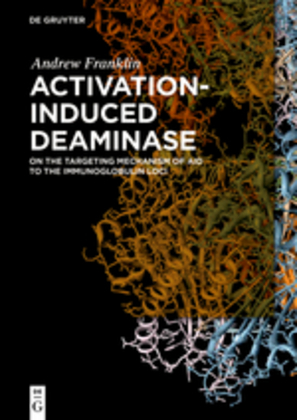Activation-Induced Deaminase
On the Targeting Mechanism of AID to the Immunoglobulin Loci
Activation-Induced Deaminase
On the Targeting Mechanism of AID to the Immunoglobulin Loci
During the course of the immune response, antigen-activated B cells produce antibodies with increased affinity for the antigen, a process called affinity maturation. A host produces antibodies with successively greater affinities with repeated exposure to the same antigen, which is the principle by which most vaccines work.
Affinity maturation relies on hypermutation, an iterative process of mutation at antibody-encoding genes, followed by positive selection of B cells expressing antibodies with increased affinity. The mechanism of hypermutation is considered to be one of the last great mysteries in molecular biology. Mutation can lead to genomic instability, so how are mutations selectively introduced to antibody-encoding genes in activated B cells?
A major breakthrough came in 2000 with the discovery that activation-induced deaminase (AID) is absolutely required for hypermutation. This was followed in 2002 by evidence that AID directly edits the DNA that encodes an antibody in an activated B cell. Much has since been learnt about the biochemistry and regulation of AID, but the mechanism by which it is recruited specifically to antibody-encoding genes remains enigmatic. Understanding this recruitment is clinically significant because off-target AID activity at oncogenes can lead to chromosomal translocations and tumorigenesis.
This book summarizes the research on AID in the context of its central role in the affinity maturation of B cells.
Franklin, Andrew
| ISBN | 9783110459951 |
|---|---|
| Artikelnummer | 9783110459951 |
| Medientyp | Buch |
| Copyrightjahr | 2025 |
| Verlag | De Gruyter |
| Umfang | 140 Seiten |
| Abbildungen | 30 col. ill. |
| Sprache | Englisch |







